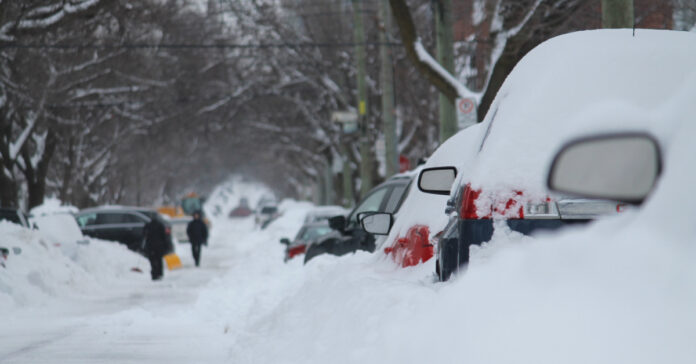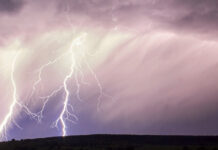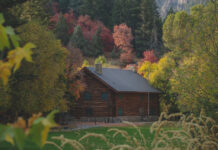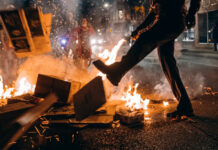One thing we learned in 2022 is most Americans are unprepared, uninformed, and expect the government to save them, coddle them, and protect them. We see this in people who don’t evacuate when a hurricane heads their way but get upset when the FEMA response isn’t fast enough to satisfy them. The lack of preparedness is obvious when parents run out of diapers and formula on the third day of a storm that was predicted a week ahead of time. A failure to plan is a plan to fail, and too many Americans set themselves up for failure.
Here are some examples harvested from the media coverage of the recent blizzard that show problems that prepping might have helped prevent:
- The parents of an infant on a respirator who did not have any kind of back-up plan in case the power went out. No batteries. No inverter. No solar power. No generator. They didn’t even have plans to take the child to a hospital or a warming center where there might have been generator power.
- The unfortunate elderly woman who relied on an oxygen machine, but had no tanks of oxygen as a backup . She also had no batteries, inverter, or generator, and no plan. She died because emergency responders could not fight their way through the snow to reach her in time.
- The people who died in the cars, sometimes because of the cold, but also because their tail pipe became clogged and carbon monoxide made its way into the vehicle. Many were in touch with 911, with friends and family, but rescuers could not reach them in time.
Preventable Problems
Don’t get me wrong; I feel bad for these people. It’s a shame that the storm has caused 60 deaths that we know of. Worse yet, many of these deaths are even sadder because many were unnecessary. The storm should not have been a surprise; forecasters predicted the storm a week ahead of time and warnings grew more fervent as it drew closer. Those that were not prepared ahead of time could have prepared at the last minute. Maybe they didn’t stop to think, “What if…”
This is where the layered approach to prepping comes into play. Don’t have a PLan B, have a Plan B, C and D. For example, I have a $50 inverter that plugs into my car’s cigarette lighter. I have a 2,000 watt inverter that uses alligator clips to attach to my vehicle’s battery. Either of these could have run a respirator or an oxygen concentrator. So could a Bluetti, EcoFlow or other solar generator. I also have a generator, and I’ve considered getting a backup. Yes, those devices can be expensive, but would they not be worth it to save your baby or your grandmother?
I think the primary reason people are unprepared is because they do not take responsibility for themselves and their safety. They were either raised to believe or learned along the way that someone else would be there to help them. Like many things, that works until the one time it doesn’t. Then you are on your own. That’s when you need a Plan B. None of these people had a Plan B. I doubt any of them had ever given it a second thought.
Think for Yourself
One thing preppers do is think for themselves. If you have ever wondered, “What would happen if…” and then done something about it, then you have what it takes to become a prepper. If you ever thought, “What would happen if…” and your answer was, “That could never happen” or “I’d call so-and-so” then you are not prepared, you are dependent.
Besides thinking for yourself, there are times you also need to stand up for yourself and do what needs to be done to be safe, no matter who objects.
For example, I saw at least one person trapped by the storm blame their employer for not letting them leave work sooner. That’s an excuse and an example of someone who listens to authority without questioning the message. That person could have left or called off earlier that day rather than drive in a blizzard. If you are at work, the snow is piling up, and you think it’s getting dangerous, tell your boss your child/mother/friend has an emergency and you have to leave. If they say no, shrug and walk out of there (unless you are in a job where they can legally mandate you to stay). It’s good to be a responsible, reliable employee, but your employer must also be responsible, which means not endangering their employees. In the end, your life should be more important than your job.
Thinking for yourself and standing up for yourself are the first steps towards independence. Independence means not following the lemmings off the cliff. It means taking responsibility for your survival rather than leaving it in someone else’s hands. It means protecting yourself, your family and your way of life, despite the obstacles others throw in your way. (We’ll talk about overcoming obstacles tomorrow.)
Self-Reliance and Self-Sufficiency
Part of being a prepper means not needing to rely on others because you can rely on yourself. You have the skills and resources to take care of yourself in all but the worst scenarios. As you live the prepper lifestyle and build your skills and preps your level of preparedness grows, as does your level of self-sufficiency.
Self-sufficiency is important because you are never more on your own than in the middle of a disaster.
Those of us who live in the middle of nowhere know you need to be prepared to be on your own. Those who live in a metropolis don’t. We prepare to be on our own for days, weeks and even months while those in the cities expect to be plowed out by the city or to walk to the corner store. Until five feet of snow keeps the snowplows from going out and the stores close due to looting and power outages.
This may be a Teachable Moment
I hope someone who had a close call because of the storm learns from it and changes their ways. Maybe they buy a generator or some canned food, which they hide in a box under their bed. Perhaps they will create a car survival kit. Maybe they’ll just take the next blizzard warning more seriously and stay home.
For everyone who takes their first tentative step towards prepping, there will be ten people who have an excuse: I can’t prep in a city; I can’t prep in an apartment; or I can’t afford to prep. All excuses that can be overcome with the application of hard work and sacrifice.
If you are already a prepper, think of how your preps helped you over this wintry weekend and celebrate your victory. Then use the tale of how you were warm and comfortable to encourage those who weren’t to prep. Don’t lead them down the rabbit hole of hard-core prepping. Be satisfied if they store a case of water, a few cans of gas, and buy a generator. Encourage them to keep an extra pack of diapers on hand or a can of formula “just in case.” Even small steps will move them forward. A pack of diapers or a case of water may not save their life, but it may make their life easier the next time a small piece of sh*t hits the fan, and that’s a winning argument.








